Renault Rafale vs Hyundai IONIQ 5 – Differences & prices compared
Compare performance, boot space, consumption and price in one view.
Find out now: which car is the better choice for you – Renault Rafale or Hyundai IONIQ 5?
The Renault Rafale (SUV) comes with a Plugin Hybrid or Full Hybrid engine and Automatic transmission. In comparison, the Hyundai IONIQ 5 (SUV) features a Electric engine with Automatic transmission.
When it comes to boot capacity, the Renault Rafale offers 627 L, while the Hyundai IONIQ 5 provides 520 L – depending on how much space you need. If you’re looking for more power, decide whether the 300 HP of the Renault Rafale or the 650 HP of the Hyundai IONIQ 5 suits your needs better.
In terms of consumption, the values are 0.60 L per 100 km for the Renault Rafale, and 15.60 kWh for the Hyundai IONIQ 5.
Price-wise, the Renault Rafale starts at 37500 £, while the Hyundai IONIQ 5 is available from 38500 £. Compare all the details and find out which model fits your lifestyle best!
Renault Rafale
The Renault Rafale captivates with its sleek design and dynamic presence on the road, embodying the perfect blend of elegance and performance. Inside, the car offers a spacious and well-appointed cabin, featuring premium materials and cutting-edge technology to enhance the driving experience. Its agile handling and responsive capabilities make it a compelling choice for those seeking a refined yet thrilling ride.
details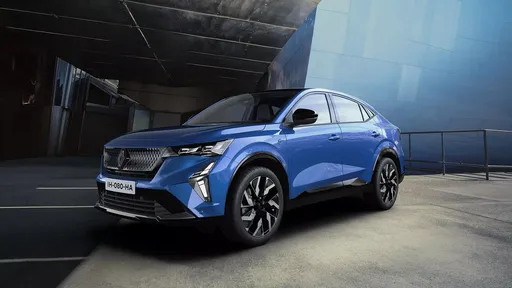 @ presse.renault.de
@ presse.renault.de
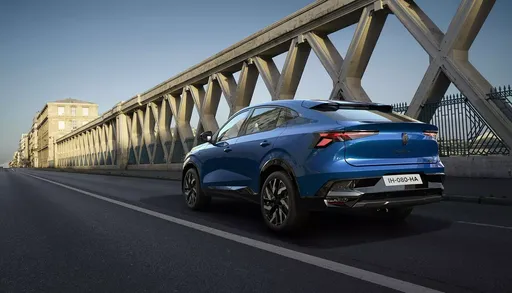 @ presse.renault.de
@ presse.renault.de
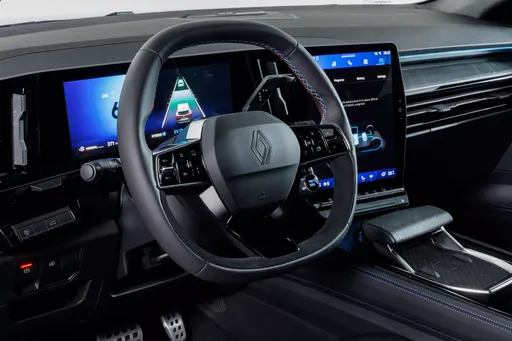 @ presse.renault.de
@ presse.renault.de
Hyundai IONIQ 5
The Hyundai IONIQ 5 showcases a bold and futuristic design that captures attention with its striking facade and sharp lines. This electric vehicle offers an impressive blend of performance and efficiency, making it a compelling choice for environmentally conscious drivers. Inside, the spacious and tech-forward interior provides a comfortable and engaging driving experience for both driver and passengers.
details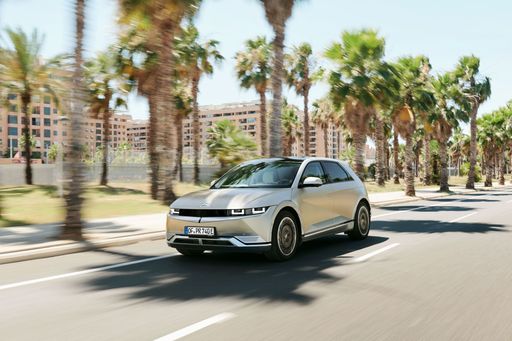 @ hyundai.news
@ hyundai.news
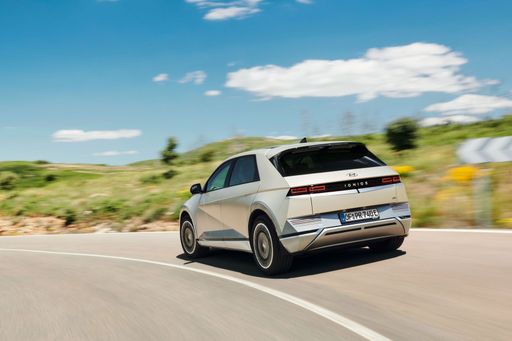 @ hyundai.news
@ hyundai.news
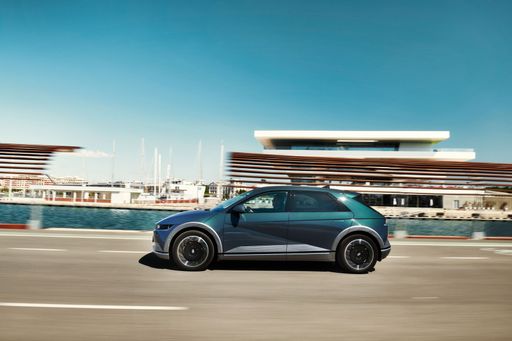 @ hyundai.news
@ hyundai.news
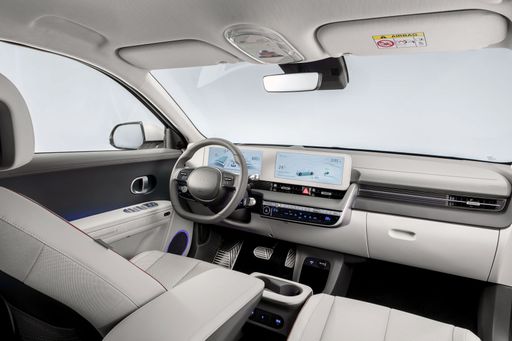 @ hyundai.news
@ hyundai.news
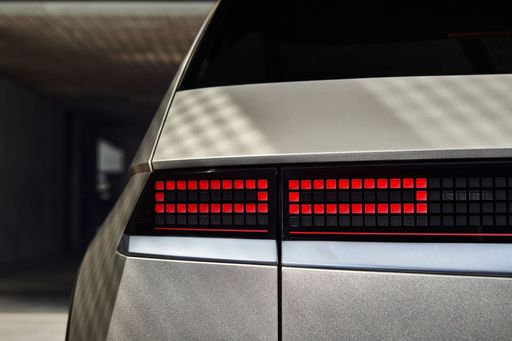 @ hyundai.news
@ hyundai.news

|

|
|
|
|
Costs and Consumption |
|
|---|---|
|
Price
37500 - 49500 £
|
Price
38500 - 64200 £
|
|
Consumption L/100km
0.6 - 5 L
|
Consumption L/100km
-
|
|
Consumption kWh/100km
-
|
Consumption kWh/100km
15.6 - 21.2 kWh
|
|
Electric Range
97 km
|
Electric Range
440 - 570 km
|
|
Battery Capacity
-
|
Battery Capacity
63 - 84 kWh
|
|
co2
14 - 109 g/km
|
co2
0 g/km
|
|
Fuel tank capacity
55 L
|
Fuel tank capacity
-
|
Dimensions and Body |
|
|---|---|
|
Body Type
SUV
|
Body Type
SUV
|
|
Seats
5
|
Seats
5
|
|
Doors
5
|
Doors
5
|
|
Curb weight
1734 - 2025 kg
|
Curb weight
1955 - 2275 kg
|
|
Trunk capacity
539 - 627 L
|
Trunk capacity
480 - 520 L
|
|
Length
4710 mm
|
Length
4655 - 4715 mm
|
|
Width
1886 mm
|
Width
1890 - 1940 mm
|
|
Height
1613 mm
|
Height
1585 - 1605 mm
|
|
Payload
415 - 444 kg
|
Payload
385 - 530 kg
|
Engine and Performance |
|
|---|---|
|
Engine Type
Plugin Hybrid, Full Hybrid
|
Engine Type
Electric
|
|
Transmission
Automatic
|
Transmission
Automatic
|
|
Transmission Detail
Automatic Gearbox
|
Transmission Detail
Reduction Gearbox
|
|
Drive Type
All-Wheel Drive, Front-Wheel Drive
|
Drive Type
Rear-Wheel Drive, All-Wheel Drive
|
|
Power HP
200 - 300 HP
|
Power HP
170 - 650 HP
|
|
Acceleration 0-100km/h
6.4 - 8.9 s
|
Acceleration 0-100km/h
3.5 - 8.5 s
|
|
Max Speed
180 km/h
|
Max Speed
185 - 260 km/h
|
|
Torque
-
|
Torque
350 - 770 Nm
|
|
Number of Cylinders
3
|
Number of Cylinders
-
|
|
Power kW
147 - 221 kW
|
Power kW
125 - 478 kW
|
|
Engine capacity
1199 cm3
|
Engine capacity
-
|
General |
|
|---|---|
|
Model Year
2024 - 2025
|
Model Year
2024
|
|
CO2 Efficiency Class
B, C
|
CO2 Efficiency Class
A
|
|
Brand
Renault
|
Brand
Hyundai
|
Renault Rafale
Introducing the Renault Rafale: A Technological Marvel
Renault's 2024 Rafale is a showpiece of modern automotive engineering, residing elegantly within the SUV category. Boasting sleek designs alongside groundbreaking hybrid technology, the Renault Rafale promises not only to meet the demands of contemporary drivers but to exceed them.
Powertrain and Performance
Under the bonnet of the Renault Rafale, you’ll find a range of hybrid powertrain options, both full hybrid and plug-in hybrid configurations. These systems combine efficient combustion engines with electric motors, outputting between 200 and 300 PS (147 to 221 kW) to deliver dynamic performance with eco-friendly emissions, achieving fuel efficacies as low as 0.6 L/100 km.
The vehicle's top speed is 180 km/h, and drivers can expect rapid acceleration from 0 to 100 km/h in just 6.4 to 8.9 seconds, owing to the automatic transmission and refined front-wheel-drive mechanism.
Technical Specifications
Measuring an extensive 4710 mm in length, 1886 mm in width, and with a height of 1613 mm, the Rafale’s dimensions underscore its commanding road presence. Occupants benefit from a spacious interior, seating five comfortably, with an ample boot space ranging from 539 to 627 litres.
The vehicle's build focuses on a blend of lightweight materials and robust structural engineering, contributing to a kerb weight between 1728 and 2025 kg, and regulated CO2 outputs of 14 to 106 g/km. With its efficient hybrid motors, the car delivers on torque, although it is officially rated at 0 Nm due to the nature of electric drivetrain torque measurement.
Innovative Features and Design
The Renault Rafale’s innovation extends beyond its engine bay. It features a multi-mode automatic gearbox, enabling seamless transitions between various driving modes for optimal performance under different conditions. Available in Esprit Alpine, Techno, and Atelier Alpine trims, buyers are offered choices that refine the driving experience on every level.
The sophisticated exterior is matched by an equally advanced cockpit, integrating cutting-edge digital interfaces to enhance driver engagement and passenger comfort. From its infotainment system to advanced driver assistance features, the Rafale represents a marriage of futuristic functionality and luxury.
Environmental Efficiency and Pricing
The Rafale's eco-credentials are further evidenced by its competitive CO2 efficiency classes ranging from C to B, demonstrating Renault’s commitment to reducing environmental impact. The plug-in hybrid variant also offers an impressive electric range of up to 97 km, perfect for urban commuters looking to minimise fuel consumption.
Priced between €43,800 and €57,800, the Renault Rafale positions itself attractively within the premium hybrid SUV segment, offering both value and advanced technology for the discerning eco-conscious driver.
Conclusion
The Renault Rafale SUV embodies a leap forward in automotive design and engineering. It’s not just a vehicle; it’s a statement on efficiency, performance, and innovation, poised to capture the attention of drivers ready to embrace the future of motoring.
Hyundai IONIQ 5
Introducing the Hyundai IONIQ 5: A New Era in Electric Mobility
The Hyundai IONIQ 5 is a revolutionary addition to the electric car market, blending futurist aesthetics with ingenious technological features. As part of Hyundai's all-electric lineup, the IONIQ 5 exudes a refreshing approach to sustainable motoring, offering a blend of power, efficiency, and innovation that is set to transform everyday driving.
A Futuristic Design
The IONIQ 5 sets new standards in automotive design with its distinctive silhouette. Its clamshell bonnet and pixelated LED light design form a unique visual signature, evoking a sense of modernity and advancement. Built on Hyundai's Electric-Global Modular Platform (E-GMP), this SUV heralds a new direction for electric vehicles, serving both form and function with a flat floor that maximises interior space.
Performance and Efficiency
The Hyundai IONIQ 5 offers a variety of powertrains to cater to different driving preferences. Depending on the model, power output ranges from 170 PS to a staggering 609 PS, with corresponding torque between 350 Nm and 740 Nm. These configurations enable a brisk acceleration capability, reaching 0-100 km/h in as little as 3.5 seconds.
The car’s battery options of 63 kWh and 84 kWh provide flexibility between range and performance. The efficiency of the IONIQ 5 is admirable, with a consumption ranging from 15.6 to 21.2 kWh/100km, ensuring the capability to travel up to 570 km on a single charge.
Innovative Technology
The IONIQ 5 isn't just about efficient propulsion; it's laden with cutting-edge technology that enhances the driving experience. The vehicle includes an ultra-fast charging capability, able to reclaim 80% of the battery life within just 18 minutes. This is complemented by Vehicle-to-Load (V2L) technology, which turns the IONIQ 5 into a power source to charge devices or even other electric vehicles.
Comfort and Convenience
Inside, the IONIQ 5 continues to impress with a spacious and flexible cabin that maximises comfort and utility. Its minimalist dashboard, dual 12.3-inch screens for infotainment and digital instrument cluster, and extensive use of eco-friendly materials contribute to a serene driving environment.
Safety Meets Innovation
Hyundai has equipped the IONIQ 5 with an array of advanced driver assistance systems. These include features such as Smart Cruise Control, Highway Driving Assist, and Remote Smart Parking Assist, ensuring that safety is paramount without sacrificing convenience.
The Future of Sustainable Driving
With a CO2 efficiency class of A and zero emissions, the Hyundai IONIQ 5 signifies a shift towards more sustainable driving practices. Its blend of technology, performance, and aesthetic appeal positions it as a pivotal player in the electric vehicle market, paving the way for a cleaner, greener future in automotive design.
What drive types are available for the Renault Rafale?
The Renault Rafale is offered with All-Wheel Drive or Front-Wheel Drive.
The prices and data displayed are estimates based on German list prices and may vary by country. This information is not legally binding.
